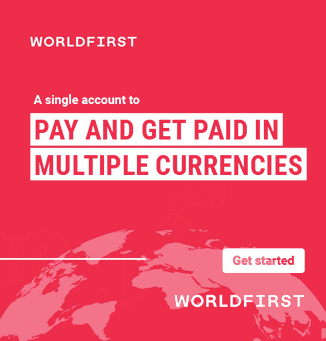The tech world is currently abuzz with talk of ChatGPT, a ‘Generative AI’ program that can mimic human writing. As with any technological advancement, this has led to people – particularly in the business world – wondering how this latest development can help them.
In this post, we’re going to look at everything you need to know about ChatGPT, including how it could potentially help your business. Let’s get started.
What is ChatGPT?
Launched in November last year, ChatGPT (Chat Generative Pre-trained Transformer) is a free-to-use chatbot created by OpenAI, an artificial intelligence company co-founded by Elon Musk.
Only this week, Microsoft announced a multibillion dollar investment in OpenAI. It is understood that they want to integrate ChatGPT into existing Microsoft software, such as Word and Outlook, and their search engine, Bing.
ChatGPT works by allowing a user to type in a question or request. The user is then presented with prose on the topic that, essentially, could have been written by a human who is knowledgeable on said topic. What’s more, it can be written in a style of the user’s choosing.
It can write essays, recipes, songs (although Nick Cave wasn’t too impressed by this), film scripts… blog posts (we assure you this post was not written by ChatGPT).
As with most AI-related endeavours, the reaction to ChatGPT has been mixed. The Guardian has described it as ‘Probably the best software program for impersonating humans ever’. However, whilst it is undoubtedly impressive, many people have highlighted that the tool is prone to making mistakes, bringing into question its reliability.
Having said this, ChatGPT gets results, literally. Professor Christian Terwiesch, at the University of Pennsylvania’s Wharton School of Business, put ChatGPT through the final exam of an MBA course and found that ChatGPT had: ‘Remarkable skills in handling problems as used extensively in the training and testing of our MBA students. Combining the results of the questions, I would grade this performance as a B to B-’. Simply put, it passed.
Closer to home, chartered accountant Stuart Cobbe put ChatGPT through a sample paper on the Institute of Chartered Accountants in England and Wales’s (ICAEW) website. The tool failed, but only just, scoring 42% (the pass mark was 55%).
Can ChatGPT help your business?
Firstly, it’s important to stress that this is very much early days for ChatGPT. As mentioned, it was only launched in November 2022, and at the time of writing the tool is inaccessible as it is ‘at capacity right now’.
Nonetheless, as a business owner, you should be aware of ChatGPT – and similar software – and how it could potentially help your business now and in the future.
Here are just some of the ways that your business could benefit.
Use it as a chatbot
ChatGPT could be the ideal solution for business owners who want a quick and easy way for customers to communicate on non-complex issues that commonly arise.
By integrating ChatGPT into the customer service journey, business owners can provide customers, new and old, with instant responses, 24/7 availability, and consistency (in its answers).
Let’s be clear – chatbots can’t beat an actual person when it comes to building up a relationship with a customer; however, having a person manning live chat isn’t a luxury all small business owners have.
Help build a website
If you are looking to build a website for your business, but don’t have the knowledge to make one yourself, or the budget to pay a professional to create one for you, ChatGPT could be the unlikely answer to your problem.
By making the right requests, not only can you use ChatGPT to create the code for your new website, but you can also get advice on naming your site and even have it write copy for your site. Don’t believe us? Take a look at this article – Build a Complete Website Using ChatGPT in 1 Minute – to see just how easy it is.
Write the things that you can’t (or don’t want to)
As a small business owner, you will have many plates to spin, so it’s inevitable that certain jobs are not given the attention they need.
ChatGPT can make life easier for you when it comes to your writing tasks.
Don’t have the time to write that blog post about the latest industry news? Struggling for a response to that poor review you received? Need to write a job ad quickly? Lacking inspiration for your latest Instagram post?
In all of these instances, the tool can provide you with the framework for a thorough, well-written piece of content.
This begs the question, does Google know if the content is taken from ChatGPT? To which the answer appears to be yes and no.
How to sign up and use ChatGPT
At the moment using ChatGPT is free, and if you can access the tool (as mentioned, it is prone to reaching capacity), very simple to use. To do this:
- Visit the ChatGPT webpage
- Create an account by entering your email address and a password
- Verify your email address
- Enter your name
- Enter your mobile number
- A text message will be sent to your mobile with a code – enter this
That’s it. Your account will be set up.
It’s then a simple task of inputting a prompt or question and waiting for the response (this normally takes around 5 seconds).
For example, after entering Answer ‘how many people use ChatGPT’ in the style of a poem, the below response came through:
The number of people using ChatGPT, A mystery, hard to see, For it’s integrated in apps, And used by you and me.
In research and academia, It’s a tool to explore, And in the hands of developers, It’s a language to adore.
But to count each user, Is a task that’s hard to do, For the usage is vast, And the numbers may be few.
So let us simply say, That ChatGPT is widely used, And in the world of language, It’s a tool to be abused.
It’s not perfect
As discussed, ChatGPT does make mistakes, particularly if the prompt from the user is not clear.
This is why, at this early stage, we don’t recommend publishing ChatGPT copy verbatim and instead suggest taking its ideas and then editing them to suit your own style.
We urge anyone who uses ChatGPT to:
- fact check any content it creates
- run content through a plagiarism checker before publishing
What do you think?
ChatGPT is no doubt a powerful language tool that could revolutionise the internet.
But what do you think? Will you be using it for your business, or is all this talk of AI a little too science fiction? And should content creators be scared, or is this simply another tool to help them?
Let us know what you think with a comment!
Thanks for reading. For more blogs like this take a look at our central blog page.
Please note that the information provided in this article is for general informational purposes only and does not constitute legal, tax, or professional advice. While our aim is that the content is accurate and up to date, it should not be relied upon as a substitute for tailored advice from qualified professionals. We strongly recommend that you seek independent legal and tax advice specific to your circumstances before acting on any information contained in this article. We accept no responsibility or liability for any loss or damage that may result from your reliance on the information provided in this article. Use of the information contained in this article is entirely at your own risk.












Join The Discussion